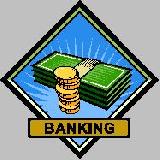
 |
|
| Financial Terms | |
| globalization |
|
Information about financial, finance, business, accounting, payroll, inventory, investment, money, inventory control, stock trading, financial advisor, tax advisor, credit.
Main Page: investment, payroll, financial advisor, money, inventory control, stock trading, accounting, inventory, Also see related: buy home, mortgage, property, home financing, home buyer, homebuying, financing, first time homebuyer, homes, |
Definition of globalization
globalizationa changeover in market focus from competition GlobalizationTendency toward a worldwide investment environment, and the integration of national capital
Related Terms:DLOM (discount for lack of marketability)an amount or percentage deducted from an equity interest to reflect lack of marketability. QMDM (quantitative marketability discount model)model for calculating DLOM for minority interests r the discount rate Auction marketsmarkets in which the prevailing price is determined through the free interaction of Average cost of capitalA firm's required payout to the bondholders and to the stockholders expressed as a Bank for International Settlements (BIS)An international bank headquartered in Basel, Switzerland, which Bear marketAny market in which prices are in a declining trend.  Black marketAn illegal market. Brokered marketA market where an intermediary offers search services to buyers and sellers. Bull marketAny market in which prices are in an upward trend. Bulldog marketThe foreign market in the United Kingdom. CapitalMoney invested in a firm. Capital accountNet result of public and private international investment and lending activities. Capital allocationdecision Allocation of invested funds between risk-free assets versus the risky portfolio. Capital asset pricing model (CAPM)An economic theory that describes the relationship between risk and Capital budgetA firm's set of planned capital expenditures.  Capital budgetingThe process of choosing the firm's long-term capital assets. Capital expendituresAmount used during a particular period to acquire or improve long-term assets such as Capital flightThe transfer of capital abroad in response to fears of political risk. Capital gainWhen a stock is sold for a profit, it's the difference between the net sales price of securities and Capital gains yieldThe price change portion of a stock's return. Capital leaseA lease obligation that has to be capitalized on the balance sheet. Capital lossThe difference between the net cost of a security and the net sale price, if that security is sold at a loss. Capital marketThe market for trading long-term debt instruments (those that mature in more than one year). Capital market efficiencyReflects the relative amount of wealth wasted in making transactions. An efficient Capital market imperfections viewThe view that issuing debt is generally valuable but that the firm's Capital market line (CML)The line defined by every combination of the risk-free asset and the market portfolio.  Capital rationingPlacing one or more limits on the amount of new investment undertaken by a firm, either Capital structureThe makeup of the liabilities and stockholders' equity side of the balance sheet, especially Capital surplusAmounts of directly contributed equity capital in excess of the par value. CapitalizationThe debt and/or equity mix that fund a firm's assets. Capitalization methodA method of constructing a replicating portfolio in which the manager purchases a Capitalization ratiosAlso called financial leverage ratios, these ratios compare debt to total capitalization Capitalization tableA table showing the capitalization of a firm, which typically includes the amount of CapitalizedRecorded in asset accounts and then depreciated or amortized, as is appropriate for expenditures Capitalized interestInterest that is not immediately expensed, but rather is considered as an asset and is then Cash marketsAlso called spot markets, these are markets that involve the immediate delivery of a security Common marketAn agreement between two or more countries that permits the free movement of capital Common stock marketThe market for trading equities, not including preferred stock. CompetitionIntra- or intermarket rivalry between businesses trying to obtain a larger piece of the same Complete capital marketA market in which there is a distinct marketable security for each and every Corner A MarketTo purchase enough of the available supply of a commodity or stock in order to Cost of capitalThe required return for a capital budgeting project. Cost of limited partner capitalThe discount rate that equates the after-tax inflows with outflows for capital Dealer marketA market where traders specializing in particular commodities buy and sell assets for their Debt marketThe market for trading debt instruments. Dedicated capitalTotal par value (number of shares issued, multiplied by the par value of each share). Also Derivative marketsmarkets for derivative instruments. Direct search marketBuyers and sellers seek each other directly and transact directly. Dividend reinvestment plan (DRP)Automatic reinvestment of shareholder dividends in more shares of a Domestic International Sales Corporation (DISC)A U.S. corporation that receives a tax incentive for Domestic marketPart of a nation's internal market representing the mechanisms for issuing and trading Efficient capital marketA market in which new information is very quickly reflected accurately in share Efficient Market HypothesisIn general the hypothesis states that all relevant information is fully and Either-way marketIn the interbank Eurodollar deposit market, an either-way market is one in which the bid Emerging marketsThe financial markets of developing economies. Equilibrium market price of riskThe slope of the capital market line (CML). Since the CML represents the Equity marketRelated:Stock market Eurocurrency marketThe money market for borrowing and lending currencies that are held in the form of Excess return on the market portfolioThe difference between the return on the market portfolio and the Expected return on investmentThe return one can expect to earn on an investment. See: capital asset External marketAlso referred to as the international market, the offshore market, or, more popularly, the Fair market priceAmount at which an asset would change hands between two parties, both having Federal funds marketThe market where banks can borrow or lend reserves, allowing banks temporarily Financial marketAn organized institutional structure or mechanism for creating and exchanging financial assets. Fixed-income marketThe market for trading bonds and preferred stock. Foreign banking marketThat portion of domestic bank loans supplied to foreigners for use abroad. Foreign bond marketThat portion of the domestic bond market that represents issues floated by foreign Foreign direct investment (FDI)The acquisition abroad of physical assets such as plant and equipment, with Foreign equity marketThat portion of the domestic equity market that represents issues floated by foreign companies. Foreign marketPart of a nation's internal market, representing the mechanisms for issuing and trading Foreign market betaA measure of foreign market risk that is derived from the capital asset pricing model. Forward marketA market in which participants agree to trade some commodity, security, or foreign Fourth marketDirect trading in exchange-listed securities between investors without the use of a broker. Future investment opportunitiesThe options to identify additional, more valuable investment opportunities Futures marketA market in which contracts for future delivery of a commodity or a security are bought or sold. Government National Mortgage Association (Ginnie Mae)A wholly owned U.S. government corporation Gray marketPurchases and sales of eurobonds that occur before the issue price is finally set. Gross national product (GNP)Measures and economy's total income. It is equal to GDP plus the income Guaranteed investment contract (GIC)A pure investment product in which a life company agrees, for a Hard capital rationingcapital rationing that under no circumstances can be violated. Human capitalThe unique capabilities and expertise of individuals. Index and Option Market (IOM)A division of the CME established in 1982 for trading stock index Intermarket sectorspread The spread between the interest rate offered in two sectors of the bond market for Intermarket spread swapsAn exchange of one bond for another based on the manager's projection of a Internal marketThe mechanisms for issuing and trading securities within a nation, including its domestic Internally efficient marketOperationally efficient market. International Bank for Reconstruction and Development - IBRD or World BankInternational Bank for Reconstruction and Development makes loans at nearly conventional terms to countries for projects of high International Banking Facility (IBF)International Banking Facility. A branch that an American bank International bondsA collective term that refers to global bonds, Eurobonds, and foreign bonds. International Depository Receipt (IDR)A receipt issued by a bank as evidence of ownership of one or more International diversificationThe attempt to reduce risk by investing in the more than one nation. By International finance subsidiaryA subsidiary incorporated in the U.S., usually in Delaware, whose sole International Fisher effectStates that the interest rate differential between two countries should be an International fundA mutual fund that can invest only outside the United States. International marketRelated: See external market. International Monetary FundAn organization founded in 1944 to oversee exchange arrangements of International Monetary Market (IMM)A division of the CME established in 1972 for trading financial Intramarket sector spreadThe spread between two issues of the same maturity within a market sector. For Inverted marketA futures market in which the nearer months are selling at price premiums to the more Investment analystsRelated: financial analysts Related to : financial, finance, business, accounting, payroll, inventory, investment, money, inventory control, stock trading, financial advisor, tax advisor, credit. |